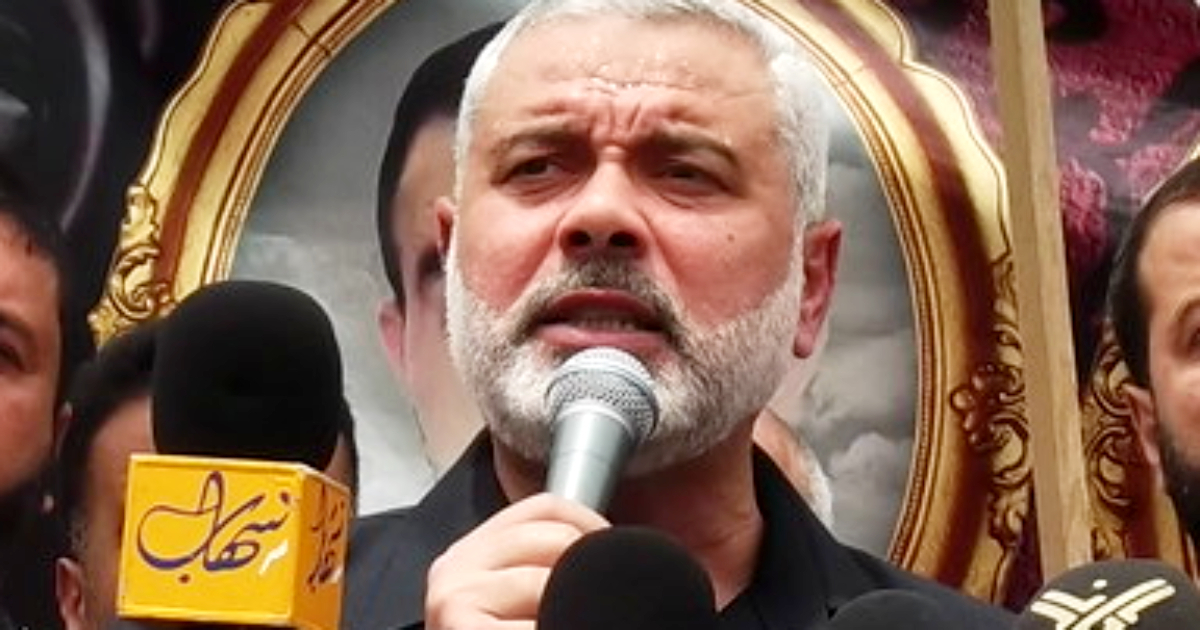The Palestinian Islamist group Hamas announced on Wednesday the death of its leader, Ismail Haniyeh, in an attack in Tehran, Iran, which is attributed to Israel.
In a statement, Hamas claimed that Haniyeh, the leader of the movement's political bureau, died following a "treacherous Zionist raid" on his residence after attending the inauguration ceremony of the new Iranian president, Masoud Pezeshkian.
The Iranian Revolutionary Guard also confirmed Haniyeh's death and reported that one of his security guards was also killed in the attack.
Hamas is responsible for the October 7 attack on Israeli soil, which resulted in over 1,200 deaths and more than 250 kidnappings, leading to the current war in the Gaza Strip, where more than 39,400 Palestinians have died.
As of now, Israeli authorities have not confirmed any attack in Tehran or Haniyeh's death. According to El Diario, Haniyeh had traveled to the Iranian capital for Pezeshkian's inauguration and was in self-exile in Qatar.
"Do not consider those who have been killed in the way of Allah as dead; rather, they are alive with their Lord, receiving sustenance," Hamas stated in reference to their leader, emphasizing his status as a martyr.
Ali Khamenei, Iran's Supreme Leader, issued a stern warning to Israel, promising revenge for Haniyeh's death. Iran and Israel have been embroiled in a dangerous escalation of military actions since the latter killed two Iranian generals in Syria.
"With this act, the criminal and terrorist Zionist regime has prepared the ground for severe punishment, and we consider it our duty to avenge the assassination on the territory of the Islamic Republic of Iran," Khamenei stated in a communiqué released by the Iranian state news agency IRNA.
For its part, the United States has not issued any official statement on the authorship of the attack. Secretary of State Antony Blinken indicated that he would not speculate on the event's impact but assured that the U.S. would continue working to "prevent an escalation of the conflict" and emphasized the importance of achieving a ceasefire in Gaza.
The de facto government of Afghanistan also expressed its condolences for Haniyeh's death, considering it a significant loss for the Islamic nation and the jihadist cause. In a statement, the Taliban mourned Haniyeh's death and reiterated their support for Hamas as defenders of the "Islamic and humanitarian duty."
The news of Haniyeh's alleged death comes amid escalating tensions in the region. Hours earlier, Israel had confirmed the assassination of the military chief of the Lebanese Shiite group Hezbollah, Fuad Shukr, described as the group's "highest-ranking military commander" and a close advisor to leader Hassan Nasrallah.
Shukr was held responsible by Israel for the deaths of thousands of Israeli civilians, particularly twelve children who died in a rocket attack in Majdal Shams in the Israeli-occupied Golan Heights.
Ismail Haniyeh was born in 1962 in the Al Shati refugee camp in Egyptian-occupied Gaza. He studied Arabic literature at the Islamic University of Gaza and became involved with Hamas during his youth.
Haniyeh quickly rose through the movement's ranks, leading the Hamas list that won the 2006 Palestinian legislative elections and becoming prime minister in a national unity government with the secular Fatah. However, tensions between the two factions culminated in Fatah's expulsion from Gaza and Hamas's takeover in 2007.
In 2017, Haniyeh was elected president of Hamas's Political Bureau, moving to Qatar, from where he led and represented the group internationally. His death represents a significant blow to Hamas and adds another layer of complexity to the already volatile political landscape in the Middle East.
Key Questions about the Death of Ismail Haniyeh
Following the death of Ismail Haniyeh, several questions have emerged regarding the implications and the details surrounding the event. Here are some key questions and answers to provide clarity:
Who was Ismail Haniyeh?
Ismail Haniyeh was the leader of Hamas's political bureau. He was born in 1962 in the Al Shati refugee camp and rose to prominence within Hamas, eventually becoming the group's international representative.
What led to the attack on Haniyeh?
The attack on Haniyeh is attributed to Israel, following a series of military escalations between Israel and Iran. Haniyeh was in Tehran for the inauguration of Iranian President Masoud Pezeshkian.
What are the implications of Haniyeh's death?
Haniyeh's death is a significant blow to Hamas and could escalate tensions in the Middle East. It also prompts strong reactions from Iran and other regional players, potentially leading to further conflict.
